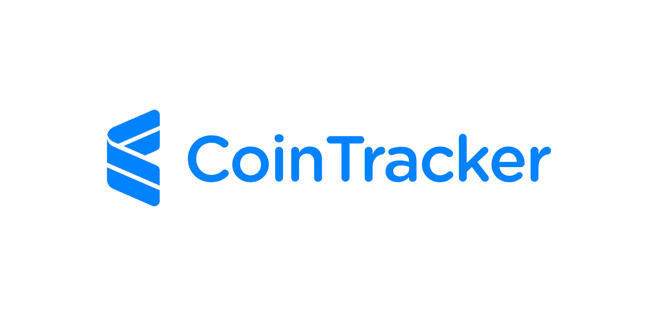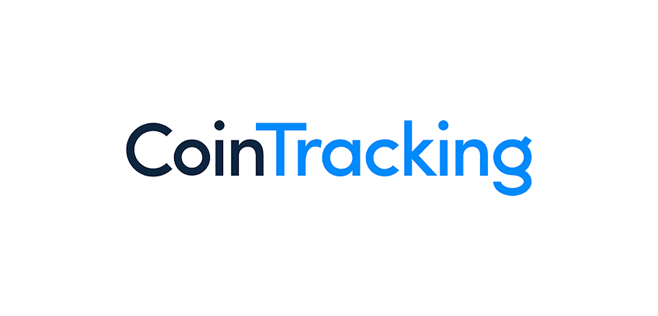 03 May 2024
03 May 2024Best Crypto Tax Software Solutions in 2024: A Comprehensive Guide

As cryptocurrencies continue to gain popularity and mainstream acceptance, the need for proper tax management and compliance has become increasingly important. With complex regulations and constantly evolving tax laws, accurately filing crypto taxes can be a daunting task for both individuals and businesses. This is where crypto tax software comes into play, simplifying the process and ensuring compliance with the relevant tax authorities. In this guide, we will explore the best crypto tax software solutions available in 2024, helping you make an informed decision for your crypto tax management needs.

Understanding crypto tax software
Crypto tax software is a specialized tool designed to help cryptocurrency users calculate, manage, and file their taxes accurately and efficiently. These software solutions integrate with various exchanges, wallets, and blockchain networks, automatically importing transaction data and calculating gains, losses, and income. By using crypto tax software, users can save time, minimize errors, and ensure compliance with the ever-changing tax regulations.
The importance of using crypto tax software cannot be overstated, as managing and streamlining transactions becomes crucial in the face of increasing scrutiny from tax authorities. With the right software, users can easily track their crypto portfolio, identify tax-saving opportunities, and generate the necessary tax reports for filing.
The rising need for crypto tax software in 2024
As the cryptocurrency landscape continues to evolve, so do the regulations and tax laws governing it. This constant flux creates challenges for both individual and institutional traders, making it difficult to stay compliant and accurately manage their tax obligations. In 2024, the need for crypto tax software will be more critical than ever, as tax authorities worldwide increase their focus on digital assets and enforce stricter compliance measures.
Changes in regulations and tax laws
Cryptocurrency regulations and tax laws are continually evolving, with governments around the world seeking to better understand and regulate the digital asset space. As a result, taxpayers must stay up-to-date with the latest changes and ensure their tax filings are accurate and compliant. Crypto tax software solutions can help users navigate these complexities by automatically applying the relevant tax laws and calculating gains, losses, and income accordingly.
Challenges faced by traders in managing taxes
Traders face numerous challenges when it comes to managing their crypto taxes. These challenges include:
- Complex calculations
Determining the cost basis, tracking gains and losses, and accounting for various transaction types can be a complex and time-consuming process.
- Multiple exchanges and wallets
Traders often use multiple exchanges and wallets, making it difficult to consolidate transaction data and calculate taxes accurately.
- Ever-changing regulations
Keeping up with the constantly evolving tax laws and regulations can be overwhelming for traders, leading to potential non-compliance and penalties.
Importance of automating tax-relevant activities
Given the challenges faced by traders, automating tax-relevant activities becomes crucial in ensuring accurate and efficient tax management. Crypto tax software solutions can help traders by:
- Automatically importing transaction data from exchanges and wallets, reducing manual input and minimizing errors.
- Applying the relevant tax laws and calculating gains, losses, and income accurately.
- Generating necessary tax reports and forms for filing, simplifying the tax filing process.
- Identifying tax-saving opportunities, such as tax-loss harvesting and expense tracking.
By automating these tasks, crypto tax software enables traders to focus on their trading activities while ensuring compliance with the relevant tax regulations.

Types of crypto tax software
Crypto tax software solutions come in various forms, each with its unique features, benefits, and drawbacks. Choosing the right software depends on your specific needs, preferences, and trading habits. In this section, we will explore six popular types of crypto tax software, highlighting their features, benefits, and pros and cons.
Cloud-based crypto tax software
Cloud-based crypto tax software is accessible through web browsers and does not require installation on your computer. This type of software offers several advantages, such as real-time updates, easy accessibility, and seamless integration with exchanges and wallets.
Features and benefits:
- Accessible from any device with an internet connection
- Real-time updates and automatic backups
- Seamless integration with exchanges and wallets
- Scalability and flexibility
Pros:
- Easy to use and maintain
- No need for software installation or updates
- Secure data storage and encryption
Cons:
- Dependent on internet connectivity
- Potential privacy concerns due to data being stored on third-party servers
Desktop-based crypto tax software
Desktop-based crypto tax software is installed and runs on your computer, offering a more secure and private environment for managing your crypto taxes. This type of software is ideal for users who prefer a local solution and have concerns about storing sensitive data on third-party servers.
Features and benefits:
- Installed and run on your computer
- Enhanced security and privacy
- Offline access to your data
- Customizable user experience
Pros:
- Greater control over your data
- Enhanced security and privacy
- No dependency on internet connectivity
Cons:
- Requires software installation and updates
- Limited accessibility (only on the computer where it's installed)
- Potential data loss in case of computer failure or damage
API-Based Crypto Tax Software
API-based crypto tax software relies on application programming interfaces (APIs) to connect with exchanges and wallets, automatically importing transaction data for accurate tax calculations. This type of software is ideal for users who trade on multiple platforms and need a streamlined solution for managing their crypto taxes.
Features and benefits:
- Automatic data import from exchanges and wallets
- Real-time updates and accurate tax calculations
- Compatibility with a wide range of platforms
- Time-saving and efficient
Pros:
- Streamlined data import and management
- Reduced manual input and errors
- Compatibility with various exchanges and wallets
Cons:
- Dependent on API availability and functionality
- Potential security concerns due to sharing API keys
Crypto-specific tax software
Crypto-specific tax software is designed exclusively for managing cryptocurrency taxes, offering specialized features and tools tailored to the unique needs of crypto traders and investors.
Features and benefits:
- Specialized tools for crypto tax management
- Support for various transaction types (e.g., mining, staking, airdrops)
- Accurate gain/loss calculations and tax reporting
- Compliance with crypto-specific tax regulations
Pros:
- Tailored to the unique needs of crypto traders and investors
- Comprehensive support for various transaction types
- Ensures compliance with crypto-specific tax regulations
Cons:
- May not support other asset classes (e.g., stocks, bonds)
- Limited functionality for users with diverse investment portfolios
Multi-asset tax software
Multi-asset tax software is designed to manage taxes for various asset classes, including cryptocurrencies, stocks, bonds, and more. This type of software is ideal for users with diverse investment portfolios who need a comprehensive solution for managing their taxes.
Features and benefits:
- Support for multiple asset classes
- Comprehensive tax management and reporting
- Integration with various financial platforms and services
- Scalability and flexibility
Pros:
- Comprehensive tax management for diverse investment portfolios
- Integration with various financial platforms and services
- Scalability for growing investment needs
Cons:
- May lack specialized features for crypto tax management
- Could be more complex and difficult to navigate for crypto-only users
Mobile-based crypto tax software
Mobile-based crypto tax software is accessible through smartphone apps, offering users the convenience of managing their crypto taxes on the go.
Features and benefits:
- Accessible through smartphone apps
- Real-time updates and notifications
- User-friendly interface and easy navigation
- Integration with exchanges and wallets
Pros:
- Convenient and accessible on the go
- Real-time updates and notifications
- User-friendly interface and easy navigation
Cons:
- Limited functionality compared to desktop or cloud-based solutions
- Dependent on mobile connectivity
- Potential security concerns due to data being stored on mobile devices
Сhoosing the right crypto tax software depends on your specific needs, preferences, and trading habits. Each type of software, from cloud-based to mobile-based, offers unique features, benefits, and drawbacks. By understanding the different types of crypto tax software and their respective pros and cons, you can make an informed decision and select the best solution to streamline your crypto tax management process and ensure compliance with relevant tax regulations.

Factors to consider when choosing crypto tax software
When selecting the best crypto tax software for your needs, it is crucial to consider several factors to ensure a smooth and efficient tax management process. Here are key factors to evaluate when choosing crypto tax software:
- Integration and versatility
Check if the software supports integration with various exchanges, wallets, and blockchain networks. This will enable you to import transaction data seamlessly and manage your crypto portfolio effectively.
- Security
Ensure that the software prioritizes security and employs robust measures to protect your sensitive data. Look for features like encryption, two-factor authentication, and secure data storage.
- Cost and transparency
Compare the pricing plans of different crypto tax software solutions and choose one that offers transparent pricing with no hidden fees. Make sure the software provides good value for money and fits within your budget.
- Customer support
Opt for a software solution that offers reliable customer support through various channels like email, phone, and live chat. Prompt and helpful customer support can significantly improve your user experience and help you resolve any issues quickly.
- Automatic imports
The ability to automatically import transaction data from exchanges and wallets is crucial for accurate tax calculations and efficient tax management. Ensure that the software supports automatic imports for your preferred platforms.
- Flexibility
Choose a software solution that can adapt to your changing needs and support various transaction types, such as trading, staking, mining, and lending. This will ensure that the software remains useful as your crypto activities evolve.
- Reliability
Select a reputable and reliable crypto tax software with a proven track record of accurate tax calculations and compliance with relevant tax regulations. Read user reviews and testimonials to gauge the software's performance and credibility.
Carefully evaluating these factors will help you choose the best crypto tax software tailored to your needs, ensuring a seamless and efficient tax management process.

Comparing popular crypto tax software solutions
As the cryptocurrency market continues to grow, so does the need for reliable crypto tax software. Several platforms have emerged to help traders and investors manage their taxes efficiently. In this article, we will discuss some popular crypto tax software options that cater to various user needs and preferences.

Koinly
Koinly is a user-friendly platform that offers a free plan and integrates with over 700 exchanges, wallets, and blockchain networks. With pricing ranging from free to $279 per year, Koinly provides an affordable solution for managing crypto taxes. Its features include automatic data import, tax reports generation, and support for various transaction types.

Blockpit (Accointing)
Blockpit, now known as Accointing, is another crypto tax software that offers a free plan and integrates with over 300 platforms. Accointing's pricing ranges from free to $299 per year, depending on the user's needs. The platform provides accurate tax calculations, portfolio tracking, and comprehensive tax reports, making it a suitable choice for both beginners and experienced traders.

CoinLedger (CryptoTrader)
CoinLedger, formerly known as CryptoTrader.Tax, is a popular crypto tax software with a free plan and over 300 integrations. Its pricing ranges from free to $299 per year, offering features such as automatic data import, tax-loss harvesting, and audit support. CoinLedger is designed to simplify the tax management process for users of all experience levels.

CoinTracker
CoinTracker is a versatile crypto tax software with a free plan and over 500 integrations. The pricing ranges from $53 to $539 per year, depending on the user's requirements. CoinTracker offers automatic syncing, tax reports generation, and support for various transaction types, making it an attractive option for those seeking a comprehensive tax management solution.

CoinTracking
CoinTracking is a well-established crypto tax software with a free plan and over 200 integrations. Its pricing ranges from free to $381 per year, providing features such as automatic data import, tax reports, and portfolio tracking. CoinTracking is suitable for both individuals and businesses looking to manage their crypto taxes efficiently.

Coinpanda
Coinpanda is another popular crypto tax software with a free plan and over 800 integrations. The pricing ranges from free to $189 per year, making it an affordable option for users seeking a wide range of integrations. Coinpanda offers automatic data import, tax reports, and portfolio tracking, catering to the needs of both beginners and experienced traders.
Each platform discussed in this article offers unique features and pricing plans, making it essential to evaluate and select the one that best suits your requirements. By doing so, you can ensure efficient tax management and compliance while focusing on your trading and investment activities.

Conclusion
Crypto tax software plays a vital role in simplifying the complex process of managing and filing cryptocurrency taxes. As tax regulations and laws continue to evolve, it becomes increasingly important for traders and investors to ensure accurate tax reporting and compliance.
Taking the time to select the best software will not only streamline your tax management process but also provide peace of mind, knowing that you are adhering to the relevant tax regulations. Ultimately, the right crypto tax software will enable you to focus on your trading and investment activities while ensuring your tax obligations are met with confidence and ease.

 Get RateX Pro
Get RateX Pro
 26 Apr 2024
26 Apr 2024



